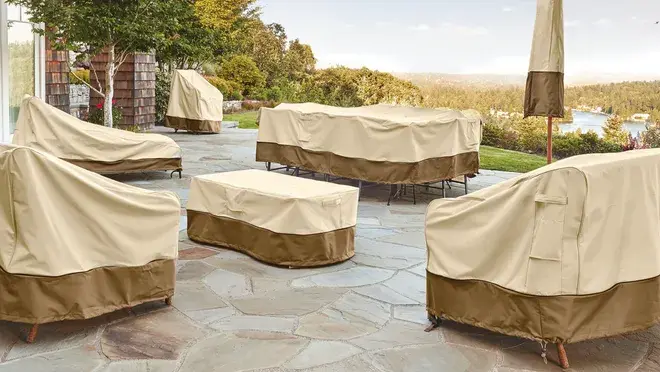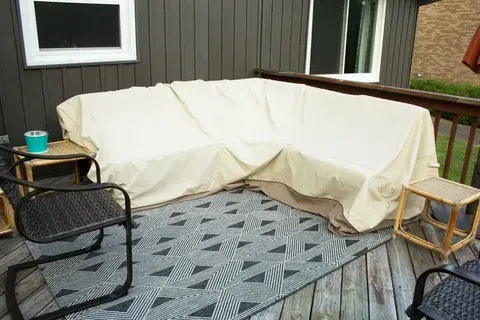Bird Net Installation for Balconies: A Sustainable Approach
- Maintenance indubai
- Jul 11, 2025
- 4 min read
Urban Bird Intrusion and the Need for Sustainable Solutions Urban living often brings residents into close proximity with wildlife, including pest birds like pigeons and crows. While nature is a vital part of city life, birds roosting and nesting on balconies pose serious concerns ranging from hygiene issues and foul odors to structural damage and noise. Traditional bird deterrents like chemicals or physical traps are often inhumane and environmentally harmful. Balcony net installation, in contrast, represents a sustainable, non-lethal method of bird control that protects property while respecting ecological balance.
How Bird Nets Align with Eco-Friendly Practices
Balcony safety net offer a humane way to manage bird populations without disrupting their life cycle. Unlike deterrents that harm or repel birds using harmful substances, nets act as passive barriers. They discourage birds from landing, nesting, or perching on protected surfaces. This method aligns with sustainable urban development goals by minimizing environmental impact while ensuring long-term effectiveness. Bird nets don’t interfere with a bird’s natural behavior beyond denying access to restricted areas, making them an ideal choice for environmentally conscious residents and property managers.
Preventing Health Hazards Without Chemicals
Pest bird droppings can transmit diseases such as salmonella, histoplasmosis, and cryptococcosis. Balconies become breeding grounds for these pathogens when birds frequently perch or nest there. Bird netting offers a chemical-free solution that blocks access without exposing residents, pets, or plants to toxic bird repellents. By eliminating the need for pesticides and caustic cleaning agents, bird nets contribute to a cleaner, healthier living environment—an important factor in modern sustainable housing practices.
Durability and Reusability of Netting Materials
High-quality bird nets are made from UV-stabilized polyethylene or nylon, which are both lightweight and highly durable. These materials resist sun damage, wind wear, and moisture decay, ensuring long service life even in harsh climates like Dubai’s. Moreover, their longevity makes them a low-waste solution: once installed, they can last up to 5–7 years with minimal maintenance. If removed during a renovation or relocation, the nets can often be reinstalled or repurposed, supporting waste reduction efforts in the long term.
Supporting Green Building and Low-Maintenance Living
Modern residential complexes increasingly aim for sustainability certifications such as LEED and Estidama. Installing bird nets contributes to green building benchmarks by reducing the use of energy-intensive cleaning services, pest control visits, and chemical applications. With netting in place, balconies stay cleaner and require less frequent maintenance, conserving both labor and resources. Residents benefit from a low-maintenance outdoor space that aligns with the principles of sustainable and efficient urban living.
Visual Minimalism with Functional Impact
One of the key concerns with balcony protection is preserving the visual appeal of the space. Bird nets are designed to be nearly invisible from a distance, particularly when using transparent or neutral-colored materials. Custom installations follow the contours of railings, pillars, and ceilings, creating a seamless appearance. This allows homeowners to maintain open views and natural light while enjoying the net’s protective benefits. The minimal visual footprint of bird nets supports eco-friendly design without sacrificing style or aesthetics.
Safety and Sustainability for Children and Pets
Besides keeping birds away, balcony nets also act as safety barriers for children and pets. In high-rise buildings, open railings pose fall risks. Installing a bird net creates an additional enclosure that prevents accidental slips and escapes. This dual functionality reduces the need for separate installations, contributing to a more resource-efficient setup. Parents and pet owners can feel secure knowing their balconies are not only bird-free but also safe, without relying on temporary or wasteful solutions.
Custom Fit for Reduced Material Waste
Bird net installations are tailored to each balcony’s size and shape, minimizing material excess. Installers measure the area precisely and cut netting to fit, which reduces offcuts and contributes to material efficiency. This custom approach contrasts with prefabricated deterrents that may require trimming, doubling, or discarding, all of which lead to unnecessary waste. By opting for a measured and made-to-fit net, homeowners directly support more sustainable construction and installation practices.
Lowering Long-Term Environmental Impact
Once installed, bird nets reduce the frequency of pest control interventions that involve transportation, chemical usage, and manual labor all of which contribute to a building’s carbon footprint. By serving as a one-time installation with long-lasting effectiveness, nets help lower recurring resource demands. Additionally, their passive nature—requiring no electricity or maintenance machinery makes them an energy-neutral bird control method. In this way, bird nets support broader efforts to make urban dwellings more climate-conscious.
Compatibility with Vertical Garden and Green Spaces
Sustainable living often includes vertical gardens, balcony plants, and potted greenery. Unfortunately, birds often peck at plants or uproot seedlings while searching for nesting materials. Bird nets protect these eco-friendly features by preserving green zones from avian disturbance. This ensures that plants thrive without being disturbed or destroyed. Balconies can become true micro-gardens enhancing air quality, supporting biodiversity, and promoting personal well-being without becoming unintentional bird sanctuaries.
Conclusion: A Practical, Ethical, and Green Investment
Bird net installation for balconies stands out as a multifunctional and sustainable solution for urban homeowners. It protects against pest bird activity, improves health and hygiene, and enhances safety, all while preserving the aesthetic and environmental integrity of modern apartments. In an age where eco-responsibility is more important than ever, bird nets offer a responsible alternative to invasive bird control methods. For cities aiming to balance growth with green values, this simple yet impactful solution delivers long-term benefits for people, property, and the planet.



Comments